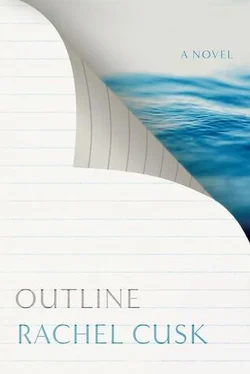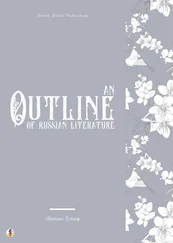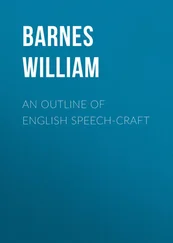Clelia’s bedrooms, of which there were two, were surprisingly spartan. They were small, box-like rooms, both of them painted pale blue. One of them contained bunk beds, the other a double bed. The bunk beds made it evident that Clelia had no children, for their presence, in a room that was not a child’s room, seemed to suggest something that otherwise might have been forgotten. The bunk beds, in other words, stood for the concept of children generally rather than for any child specifically. In the other room, one entire wall was taken up with a set of mirrored wardrobes that I never looked inside.
In the centre of Clelia’s apartment was a large light space, a hall, where the doors to all the other rooms converged. Here, standing on a plinth, was a glazed terracotta statue of a woman. It was large, around three feet tall — more if you included the plinth — and showed the woman in a striking attitude, her face lifted, her arms half raised with the palms and fingers open. She wore a primitive robe that had been painted white and her face was round and flat. Sometimes she looked as if she were about to say something, sometimes as if she were in despair. Occasionally she appeared to be conferring some kind of benediction. Her white garment glowed at dusk. You had to pass her frequently, going from one room to another, yet it was surprisingly easy to forget that she was there. Her white looming figure with its raised hands and its broad flat face, with its swiftly changing mood, was always slightly startling. Unlike the people in the café window downstairs, the terracotta woman made reality seem, for a moment, smaller and deeper, more private and harder to articulate.
The apartment had a large outdoor terrace that ran across the full width of the building’s façade. From this terrace, high above the pavements, the surrounding rooftops with their baked, broken angles could be seen, and further away the smoggy distant hills of the suburbs. It faced, across the chasm of the street, the windows and terraces of the apartments opposite. Sometimes a face would appear at one or other of the windows. Once, a man came out on to his terrace and threw something over the side. A young woman came out after him and looked down over the railings at what he had thrown. Clelia’s terrace was private and leafy, filled with big tangled plants in terracotta urns and hung with small glass lanterns: in the middle there was a long wooden table and many chairs, in which it could be imagined Clelia’s friends and associates sat during the hot dark evenings. It was shaded by a huge vine in which, sitting one morning at the table, I noticed a nest. It was built into a fork amidst the tough, knotty stems. A bird was sitting in it, a pale grey dove: every time I looked, night or day, there she was. Her small pale head with its dark bead-like eyes moved around as though fretfully, yet for hour after hour she kept her vigil. Once I heard a great rustling overhead and looked up to see her clambering to her feet. She thrust her head through the canopy of leaves and gazed around her at the rooftops. Then with a snap of her wings she was gone. I watched her fly out over the street and then, circling, land on the rooftop opposite. She stayed there for a little while, calling, and then I watched her turn back and look at the place from which she had come. Having got this view of it, she opened her wings again and flew back, and with another great rustling and flapping overhead resumed her station.
I wandered around the apartment, looking at things. I opened a few cupboards and drawers. Everything was highly orderly. There was no confusion or secrecy: things were in their correct places and complete. There was a drawer for pens and stationery, a drawer for computer equipment, a drawer for maps and guides, a filing cabinet with papers in neat dividers. There was a first-aid drawer and a drawer for sellotape and glue. There was a cupboard for cleaning materials and another for tools. The drawers in the antique oriental bureau in the sitting room were empty and smelled of dust. I kept looking for something else, a clue, something rotting or breeding, a layer of mystery or chaos or shame, but I didn’t find it. I wandered into the study and touched the brittle sails.
My neighbour from the plane was a good foot shorter than me and twice as wide: since I had got to know him sitting down, it was difficult to integrate these dimensions with his character. What located me was his extraordinary beak-like nose with the prominent brow jutting out above it, which gave him the slightly quizzical appearance of a seabird, crowned with his plume of silver-white hair. Even so it took me a moment to recognise him, standing in the shade of a doorway opposite the apartment building, dressed in buff-coloured knee-length shorts and a red checked shirt, immaculately ironed. There were various points of gold around his person, a fat signet ring on his little finger, a chunky gold watch, a pair of glasses on a gold chain around his neck and even a flash of gold when he smiled, all immediately noticeable, and yet I hadn’t been aware of any of them during our conversation on the airplane the day before. That encounter had been, in a sense, immaterial: above the world, objects didn’t count for so much, differences were less apparent. The material reality of my neighbour, which up there had seemed so light, was concretised down here, and the result was that he seemed more of a stranger, as though context were also a kind of imprisonment.
I was certain he saw me before I saw him, but he waited for me to wave before he acknowledged me in return. He looked nervous. He kept glancing up and down the street, where a fruit seller stood yelling inchoately beside a cart mounded with peaches and strawberries and chunks of watermelon that seemed to grin in the heat. His face took on an expression of pleased surprise when I crossed the road towards him. He kissed me slightly drily and fumblingly on the cheek.
‘Did you sleep well?’ he asked.
It was nearly lunchtime, and I had been out all morning, but it was apparent that he wished to create a sphere of intimacy in which our knowledge of one another was continuous and in which nothing had happened to me since we had said goodbye at the airport taxi rank the evening before. In fact I had slept very little in the small blue bedroom. There was a painting hanging on the wall opposite the bed, of a man in a trilby hat throwing back his head and laughing. When you looked you saw that he had no face, just a blank oval with the laughing void of his mouth in the middle. I kept waiting for his eyes and nose to become visible as the room got light, but they never did.
My neighbour said that his car was parked just around the corner and after a hesitation he placed his hand in the small of my back to guide me in the right direction. His hands were very large and slightly claw-like, and covered with white hair. He was concerned, he said, that I would not think much of his car. It had struck him that I might have imagined something far grander, and he was embarrassed if that was the case; but he himself didn’t set much store by cars. And for driving around Athens, he had found that this was all he needed. But you could never tell, he said, what other people expected; he hoped I wouldn’t be disappointed, that was all. We reached the car, which was small and clean and otherwise unremarkable, and got in. The boat, he said, was moored about forty minutes’ drive away along the coast. He used to keep it at a marina much closer to the city, but the mooring was very expensive and so a couple of years ago he had decided to move it. I asked him where his house was, in relation to the centre, and he gestured vaguely with his hand toward the window and said that it was half an hour or so away over there.
Читать дальше












